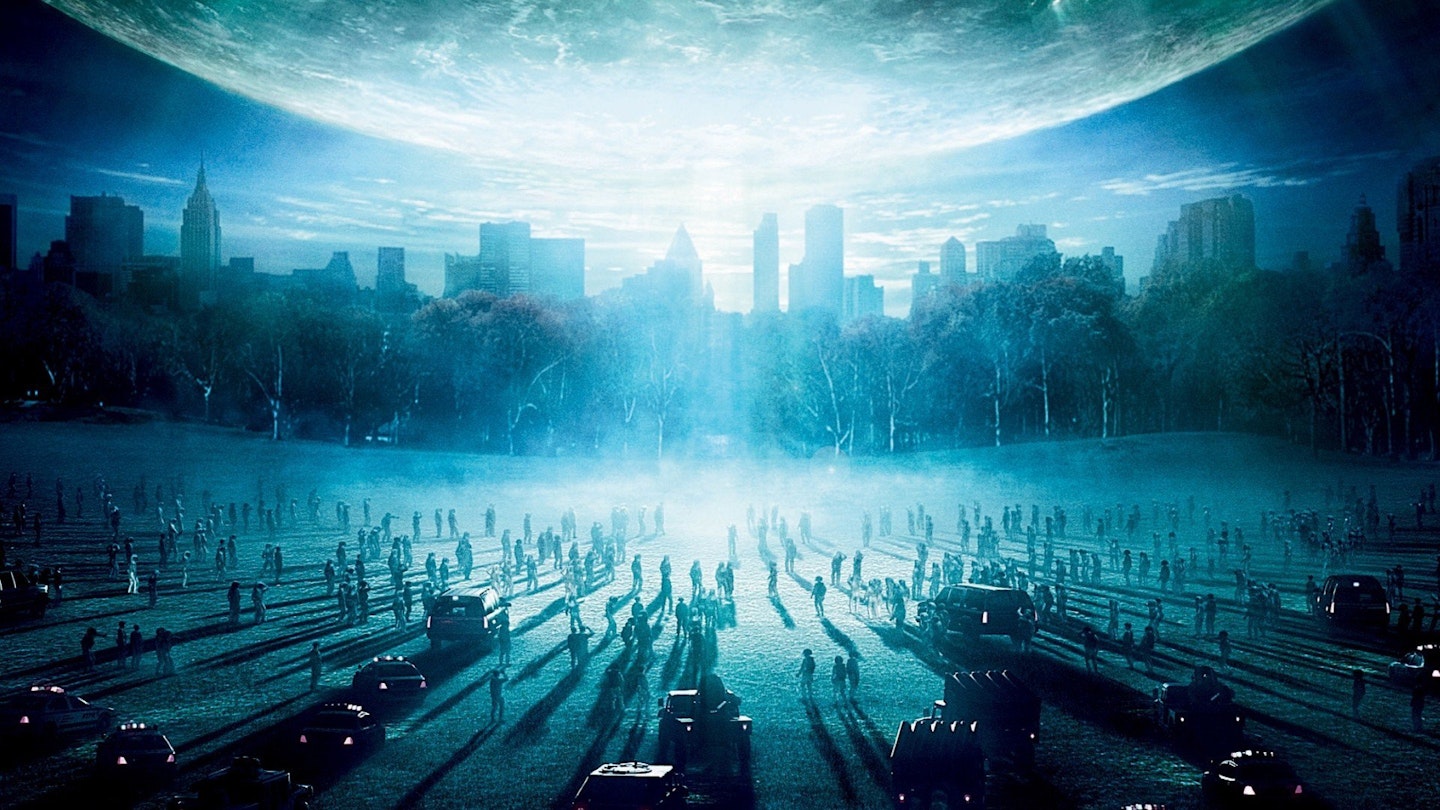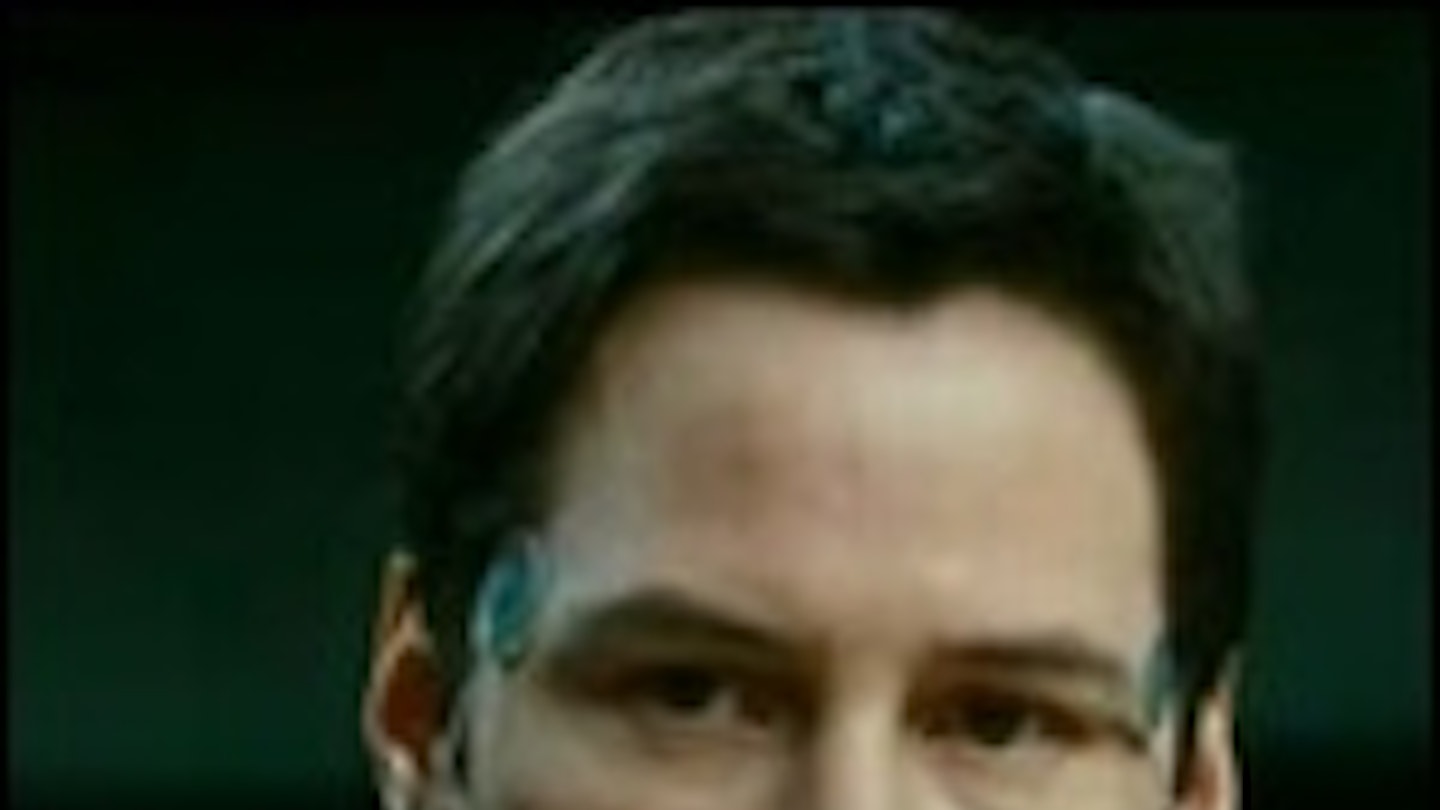Extraordinary for its great intelligence, sophistication and acuity. An admonishment for the Atomic Age, its insistent message — "Pursue your present course and face obliteration" — carries
even more urgency 50 years on than it did when internationalists and anti-nuclear lobbyists were regarded (and often persecuted) as un-American kooks and subversive stooges of the Red Menace.
The film's enduring popularity is a tribute to the strength of its idea, its thoughtful, articulate screenplay by Edmund H. North (a former army officer who years later shared Academy Award honours with Francis Ford Coppola for their Patton screenplay) and the quality of the acting (all enhanced by composer Bernard Herrmann's understated but much-imitated mood score and Leo Tover's eerily lit black-and-white cinematography), rather than its minimal action and modest if effective visual tricks. Director Robert Wise's inexpensive but ingenious realisation of the worldwide power cut sequence that gives the film its title is the icing on a perfectly-baked cake.
Although its basis comes from the imaginative story Farewell To The Master by Harry Bates, published in Astounding Science Fiction in 1940, The Day The Earth Stood Still is quite a differently developed, cautionary fable assuming the guise of pulp science fiction. Immediately, the serious, unspectacular tone engineered by Wise renders the fantastic tale grippingly credible. After an unidentified craft circling the Earth at impossible speed is tracked by radar, an astonished, fearful populace and an armed-to-the-teeth military contingent greet its landing in Washington D.C. From the prototypical silvery domed saucer a humanoid figure calmly emerges. "We have come to visit you in peace and with good will," he says and is promptly shot by a nervous soldier with an itchy trigger finger.
It would almost be funny if it weren't so easy to believe that this is exactly what would happen if such a scenario ever happened for real. And what the over-eager sniper took to be a weapon, held out by the visitor, was actually a pressie, a gizmo for studying life on other planets, smashed beyond repair. Shame! The recovering alien, Klaatu (Michael Rennie), whose embarkation point remains a mystery — "Let's just say we're neighbours" — shows enviable forbearance by still wanting to meet with representatives from all the nations of the earth to deliver a message.
He receives a string of politically-motivated excuses for the impracticality of this and decides instead to mingle with the ordinary folk in an attempt to understand such "strange, unreasoning" stupidity. Posing as one Mr. Carpenter he befriends widowed secretary Helen Benson (Patricia Neal) and her son Bobby (Billy Gray) while his robot companion Gort (big, quiet type with a visor face, emits a disintegration ray when provoked) stands sentry at the saucer. It's interesting, Bobby tells Klaatu, who is in search of an ally with some influence, that the greatest man in America is scientific genius Professor Earnhardt (Sam Jaffe, playing an amiable Einstein stand-in). A contemporary 10-year-old would almost certainly have to direct him to a basketball player or TV talk show host.
Klaatu's concept for a drastic demonstration of force to get a hearing — "Something dramatic but not destructive" — is brilliant: he neutralises all electrical impulses, everywhere, with the considerate exceptions of hospitals and planes in flight. For half an hour the world (cue stock shots of New York, London, Paris and Moscow at a standstill) is brought to a halt. Again, plausibly, Klaatu's disappearance and display of technological superiority are attended by neatly delineated tensions: spiralling hysteria, Monster From Mars headlines, an accelerating hunt, betrayal from Helen's venal, self-serving fiance (Hugh Marlowe, typifying the segment of mankind begging to be exterminated) and violence. Only the dying Klaatu's message, which Helen must deliver to Gort — "Klaatu barada nikto!" — can prevent the robot from turning the planet into a burnt-out cinder.
Invested with this responsibility, Neal's Helen is practically unique in 50s drama, sci-fi or otherwise. She's a working mother raising a bright, open child. She doesn't fall and twist her ankle and she doesn't scream once even though she shows a healthy respect for the robot. She stands up to her weasely man. She doesn't have a trust issue, and she's not there for smooches, insidious mind control or getting her clothes, alluringly torn. Very impressive.
Wise is most often acknowledged as the Academy Award-winning director of West Side Story and The Sound Of Music, but this is his signature masterpiece, suffused with the understanding he showed as editor of Citizen Kane and the command of moody atmosphere demonstrated in his directorial debut Curse Of The Cat People and honed in his classic horror-thriller The Body Snatcher.



